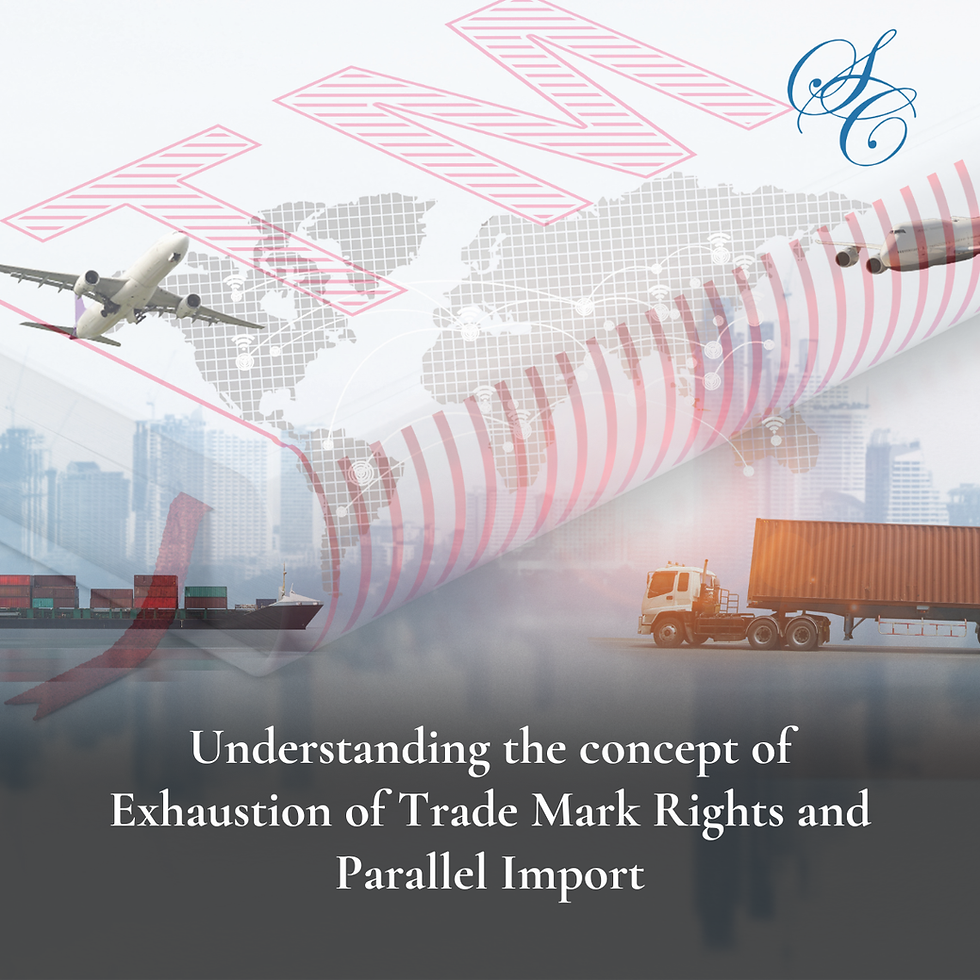Export of a Patented Product in Commercial Quantities by a Non-Patentee Amounts to Infringement of P
- Sarwajeet Singh
- Jul 31, 2020
- 2 min read
Our Associate, Abhilasha Rathore discusses “Export of a patented product in commercial quantities by a non-patentee amounts to infringement of patent rights”
Recently, the Hon’ble Delhi High Court, in Bayer Intellectual Property GmbH & anr. v.Titan Laboratories Pvt. Ltd., reemphasized the need for protecting the interests of a patent holder.
Bayer Intellectual Property GmbH (“Plaintiff”) was the owner of a valid and subsisting patent that covers and claims the compound RIVAROXABAN. The Plaintiff’s patent for the product RIVAROXABAN was registered in several countries worldwide, including in India. The Plaintiff was importing RIVAROXABAN through an Indian company under the trade mark XARELTO.

The Plaintiff alleged that Titan Laboratories Pvt. Ltd (“Defendant”) had not launched the product RIVAROXABAN in India, but was exporting it from India albeit under another brand name MEZOSER-S. Moreover, the Defendant had also listed RIVAROXABAN tablet on its website as one of its anticoagulant products. The Plaintiff alleged that these acts amounted to infringement of the patent owned by Plaintiff in the product RIVAROXABAN.
The High Court held that the Defendant was exporting the product RIVAROXABAN in finished form and in commercial quantities, and that such export would not be protected by the provision of the law on patents that states circumstances in which unauthorized use of a patented product would not amount to patent infringement. Use by the Defendant during the course of export would be considered as use in India.
Accordingly, the court held that a prima facie case was made out by the Plaintiff and that the balance of convenience was in favour of the Plaintiff. Therefore, the court granted an ex-parte ad interim injunction against the Defendant for use of the RIVAROXABAN product.
As per the law governing patents in India, a non-patentee in specified circumstances, can be permitted to use, make, construct or import a patented invention. One such permissible purpose is when such acts are solely for uses reasonably related to the development and submission of information required under any law for the time being in force and regulating the manufacture, construction, use, sale or import of any product in India, or any other country. Therefore, as long as a non-patentee uses the patented product for this limited purpose, he cannot be held liable for infringing the rights of the patent holder.




Comments